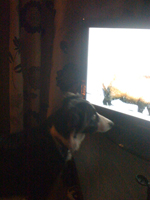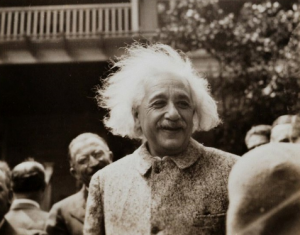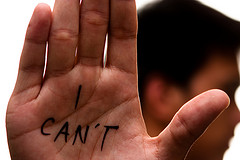
I’ve been teaching Inca doglet dog tricks, as opposed to cat tricks, ’cause em, she’s a dog!
And she’s making (cough cough) wonderful progress.
Don’t know Inca? Ah. Right. She’s a collie.
She’s a smart collie.
She’s a smart, typical collie.
She’s a smart, typical, highly intelligent collie that requires lots of stimulation, otherwise the socks get it!
She’s that smart!
Aside: I sometimes think in my ‘mindfulness moments’ she’s been sent to me from those ‘higher powers’, so I can learn some deeper ‘zen like’ lessons about patience, understanding and tolerance. If so, the ‘universe’ is having a right old laugh.
Anyhoo…
I bought a book called The Only Dog Tricks Book You’ll Ever Need, and I’m thinking about adding it to one of the ‘Best Self Help/Personal Growth Books Ever’ list, well I would, if I had a list with that title.
I’ve had the book a while and just today flicked through the first few chapters.
Yes, I jumped straight to the tricks — there’s a lesson learned. Between you and me, I actually read the last page of any book first, ever since I watched When Harry Met Sally.
Page 11 has a the title ‘The Keys to Training Success’. I wanted to share them with you because:
a) sometimes we can learn things from the strangest of places
b) they can be completely transferred into our non canine world
c) they make perfect sense
d) it gives me a chance to work through my ‘Inca Issues!’ ;-)
Here goes…
Introduction:
Book says ‘most keys to success are universal, but it helps if you use the ones that fit your personality.’
Light Bulb!
How true is that? How many of us try to develop ourselves using tools that just don’t fit with our personality or learning styles? For example, vision boards over writing goals, or a firewalk over 6 months coaching for breaking through a limiting belief. Same results, different methods.
Do you prefer to learn in groups, 1:1, by listening, seeing, hands on? Do you actually know? What’s your preferred learning style? Visual, auditory or kinesthetic. We learn best when we choose the methods that suits our strongest preference.
Key 1: Be Patient
Book says ‘all dogs learn at different speeds and often don’t grasp concepts as quickly as we think they should. Having patience with your dog will help her success’
Human translation: stop beating yourself up, mentally and emotionally, if you aren’t getting any new learning ‘right’ first time. Be gentle with yourself. Don’t let others dictate where you should be at.
Key 2: Plan Ahead
Book says ‘set your dog up to succeed, if your dog isn’t getting it, the behaviour probably needs to be broken down into smaller steps’
Human translation: all big goals require smaller steps put in place. All little goals completed successfully eventually are the larger sum of the big goals. Your behaviour, the actions you take, what you actually do will determine the final outcome. If something isn’t working, look at your behaviour.
Key 3 Be Realistic
Book says ‘dont expect your dog to perform a behaviour in an environment you haven’t taught him’
Human translation: This is a big a-ha.
Have you ever considered how the environment affects your behaviour, state of mind or emotional well being? It can include your actual physical environment or even the company that you keep. Do you perform better in certain environments than others or with certain people?
A simple life example: as a trainer I’ve been in a few physical spaces to deliver training. If the environment is small, cramped, no natural light, uncomfortable, looks like a training room, I’ll ask for somewhere else. Why? Because the environment will affect the states of any participants. If the environment screams ‘sad, unclean, cold, unwelcoming’, no way will that be a good place to learn anything.
Take a look around today just at your physical environment, is it working for you?
Key 4 Be Kind
Book says ‘use positive methods to teach your dog what is expected of her’
Human translation: Don’t pass through any small success to quickly. Give yourself small rewards. As simple as saying to yourself ‘that was a job well done’ to an actual reward ‘when I achieve this, I’ll take the evening off and…’. You’ll know what you class as a reward.
Give yourself a reason for actually carrying out a task or similar. What will happen when you achieve it?
Key 5 Avoid Punishment:
Book says ‘harsh corrections have no place in the learning phase of your dogs development, instead teach your dog what you want him to do’
Human translation: Wonderful. Love it. What does it mean to you?
End the negative, self destructive and self sabotaging ‘mental chit chat’. There’s no place for it.
Think about this, imagine if you were aware during your most developmental years as a human being. Perhaps the time that included when you were learning to crawl and walk.
Would you give yourself a harsh correction everytime you fell down? No, course not. You just tried again.
And perhaps not as obvious, we are very good at focusing on unwanted behaviour: ‘I musn’t, I shouldn’t, I don’t want, I need to, I have to’ and not focusing in on the behaviour we want. Focus on the desired result ‘I will, I am, I choose to, this time I’ll, I love’, massive difference!
Key 6 Reward Effectively:
Book says ‘reinforce behavior with what motivates your dog a pat on the head is nice, but not necessarily what she wants. remember her paycheck, pay up.
Human translation: What motivates you? Have you ever sat down and worked out what drives you? Do you need external rewards or internal? Do you need someone to acknowledge your behaviours and actions or can you do it for yourself?
Key 7 Be Generous:
Book says ‘be generous all new trainers tend to cheat with reward, reward correct responses often and don’t be afraid to reward exceptionally good responses with extra treats, praise, toys and love’
Human translation: Be generous to yourself and others. Give to yourself freely with no guilt. Give to others expecting nothing in return. And the biggest learning is ‘don’t be afraid’. Don’t be afraid to reach out and give freely to another. Don’t be afraid to put someone before yourself just for a time. Don’t be afraid to offer someone what they need, regardless of who they are.
Key 8 Set Goals
Book says ‘if you dont know where you are going and have not planned out the session, how will you know when your dog’s got it’
Human translation: well, what can I say. Key 8 doesn’t need another explanation. If you don’t know where you’re heading, how on earth will you knoe you’ve arrived. The next stage is to goal set through.
Key 9 Practice Often:
Book says ‘often teach your dog in short, frequent sessions’
Human translation: How often do you ‘give up’ on a goal, plan, idea because things aren’t going exactly the way you planned?
Do you try to cram in too much, too soon? Are you an information sponge, yet, never apply what you read and learn? Our brains need ‘downtime’, the need to be able to process new information, we need to fit the new learning into what our current experience of the world is.
Key 10 Stay Positive
Book says ‘quit with your dog wanting more an enthusiastic student is always eager to learn’
Human translation: As a trainer, one of my mottos is ‘leave a learner wanting to find out more’. I love when a learner or client ‘quits’. The day when they have passed through everything I have to share and they move on to something or someone else, as they are the best person for next part of the learning journey, that can only be a good thing.
As the saying goes ‘A teacher is one who makes himself progressively unnecessary’ Thomas Carruthers
Do you push yourself so hard only to lose enthusiasm and the vision of your goal?
Isn’t it funny, how sometimes learning can come from the strangest of places. I mean a dog tricks book? Eyes open, the answers are there!
Your Turn…
Have you ever learned anything from somewhere, somebody or something you least expected to? Feel free to share in the comments below. OR, what have your pets taught you?


 Yep, you have.
Yep, you have.
 However, feelings are never the root or cause of a problem.
However, feelings are never the root or cause of a problem.